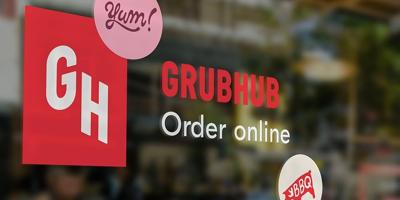
CHICAGO - Grubhub has agreed to pay $7.1 million to restaurants behind a class action alleging the food delivery service falsely promoted partnerships with thousands of businesses.
Restaurants could get between $80 and $600 each from the deal, while plaintiffs' lawyers who filed the class action are seeking $2.3 million for themselves.
In an Aug. 26 filing, the business plaintiffs requested preliminary approval of an agreement they said will end nearly five years of litigation over what they call “Grubhub’s decision to place thousands of restaurants on its platform without a contract in place,” an action the restaurant proprietors claim “confused consumers into believing that the non-contracted restaurants were affiliated with Grubhub and endorsed its delivery services.”
Grubhub denied any wrongdoing or liability and refuted the allegations that any business suffered damage through the claimed conduct. But the restaurants insisted Grubhub employed a strategy of listing scores of noncontracted restaurants on its service to show investors it was keeping up with competitors like DoorDash and Uber Eats. Because there was no partnership, the businesses claim, Grubhub users encountered outdated menus, canceled orders and delayed deliveries while the restaurants suffered reputational hits, lost direct control over dining experiences and their own online presences, and endured reduced demand.
The restaurants alleged Grubhub executives told investors the poor outcomes were intended to entice restaurants to engage in formal contracts in hope of improved business. The benefit to Grubhub would be keeping about 30% from each order.
Through a deal reached in connection with federal Magistrate Judge Gabriel Fuentes, Grubhub will pay more than $7.15 million. Class members who submit valid claim forms can get $50 each and a prorated amount based on the amount of time any restaurant without a contract was nonetheless listed on the Grubhub platform. The median total payout is pegged at $685 with a 1% claims rate and $80 at a 10% claims rate. Restaurants can submit claims from Nov. 3, 2025, through March 4, 2026.
Attorneys representing the restaurants will move to be paid up to a third of the overall settlement pool, a sum exceeding $2.3 million, and be compensated for litigation expenses up to $150,000. Grubhub has retained the right to oppose the attorneys’ application for that compensation. The motion calls for appointing attorney Rosemary Rivas, of Oakland, law firm Gibbs Mura; and attorney Elizabeth Fegan, of Fegan Scott, with offices in Chicago and New York, to serve as class counsel.
In addition to the payout, Grubhub acknowledged it must comply with a 2024 permanent injunction from a Chicago federal judge stemming from the Federal Trade Commission’s settlement of its own litigation. According to the plaintiffs, who said the FTC’s terms are similar to the relief they’d sought, the federal “injunction permanently prohibits Grubhub from advertising, marketing, displaying landing pages, listing menus or other content (such as open or closed status) or offering for sale or selling on Grubhub any perishable good or any good or service, from any restaurant of any kind that does not have an agreement with Grubhub to sell or offer to sell its goods or services on Grubhub.”
Nine named corporate plaintiffs are seeking service awards of $20,000 each: Lynn Scott, The Farmer’s Wife, Thuan Luu, Old Crown, 132 Degrees, MDR, Momobbq, Tasty and Iowa City Coffee Company. Each said they spent more than 200 hours on the lawsuit. Another corporate plaintiff, The Tin Pig, will seek $7,000 for 70 hours since filing a complaint in late 2023.
“There are many questions of law and fact that are common to the proposed settlement
Class,” according to the motion for approval. “These include whether defendant’s inclusion of unaffiliated restaurants on its platform was likely to cause consumer confusion as to the restaurant’s affiliation with Grubhub; whether and how much Grubhub profited from including unaffiliated restaurants on its website and mobile apps without a contract in place; whether Grubhub engaged in false advertising by including unaffiliated restaurants on its website and mobile apps without a contract in place; whether Grubhub engaged in false advertising by stating that deliveries from non-partnered restaurants are available on Grubhub; whether Grubhub’s actions violated the Lanham Act; and the nature of the relief, including damages and equitable relief, to which plaintiffs and the settlement class members are entitled.”






